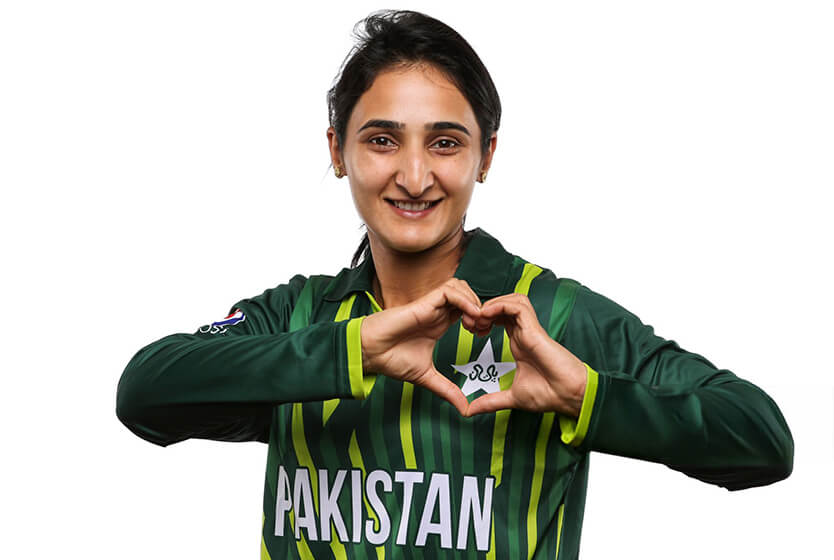
What Bismah Means
At the risk of sounding like a broken record, or acting like a faulty photocopier, or operating like a bottle-filler factory: being a Pakistan cricket fan is hard. Hard and painful and unnecessarily difficult for something that is meant to be a hobby at best and a soul-sucking passion at worst. If you don’t have a coach mysteriously dropping dead after a hall-of-shame World Cup, you have your newest bowling prodigy finding himself banned after a spot-fixing scandal. If you haven’t built up a mental archive of the most horrendous catch-drops of all time, you probably have an impending heart condition cumulating from instance after instance of a won game lost. Despite the (very) intermittent bursts of joy and despite all Pakistan cricket gives us – it has never been easy.
And at the risk of sounding like a broken record that people keep listening to but never enough to fix – being a Pakistan women’s cricket fan is harder. I’m not even talking about the injuries, or the disparate scheduling, or the pay gaps. I suppose I could be talking about the instability, the sheer neglect, and the fact that an interim coaching structure has been in place for longer than some permanent ones have been. I could be talking about the lack of coverage, the lack of broadcasting infrastructure, the lack of involvement of female cricketers when it comes to representing Pakistan on a broader level, the lack, the lack, the lack. If it’s difficult to be a fan of women’s cricket in Pakistan, I’m sure being an actual cricketer is infinitely harder.
Women’s cricket in Pakistan is a stepchild, the aftertaste of an afterthought. The disparities begin at unseen levels – from the lack of support girls in sport get at the grassroots level, from the mountains of social stigma attached to being a female athlete in this country. There are (one-sided) conversations about womanhood (or the lack thereof) and about the duties of daughters and mothers and wives, and those about how girls don’t know how to play and how no one wants to watch them. The list isn’t exhaustive, and I could go on, but this is not what this article is about.
On Thursday, Bismah Maroof announced her retirement from all forms of international cricket, effective immediately.
I’ve used the word ‘lack’ eight times already – nine.
What this article is about is this: when an institution or organisation or group functions from a field of lack, riddled with systemic potholes, it requires instances of great substance and rigor to keep it afloat. It requires that there are enough instances of individual brilliance that are brilliant enough to sustain an entity that is destined for turbulence. It is one thing to be significant in sport; it is one thing to contribute to it. It is an entirely different thing to be Bismah Maroof and be unprecedented.
There is only so much I can say about Bismah – leading scorer for Pakistan across two formats, most games played, most matches won as T20 captain. There are only so many numbers I can quote about Bismah – there are plenty, and they are known, and they all lend themselves to her brilliance. I am not a statistician, and I’m not an analyst. I’m also not someone who claims to know the sport completely – I am, for all intents and purposes, someone who screams a little too intensely while watching a cricket match. But for all of my inadequacies, I know this much – what Bismah has meant to Pakistan cricket will always transcend her legacy on paper.
Seventeen years is a long time – especially when you consider how young women’s cricket in Pakistan is relative to men’s, with the team making its debut in 1997. In the years since then, despite all the growth women’s cricket has seen, it has been an uphill battle. And while I haven’t been dedicatedly watching women’s cricket for long enough to claim to have witnessed most of it, I have seen enough to know that watching it requires a certain perseverance as a fan, that fans of exclusively men’s cricket perhaps don’t. It requires placation: that victories are always hard-earned and always important, regardless of the context of the match. It requires the deep-seated admission that the disparities between the bigger teams and the smaller ones are sometimes a bit too large to be overcome by sheer talent – and the understanding that we can’t perceive progress as something necessarily linear, or we won’t progress at all.
Yesterday, as the message of tribute and expressions of disbelief started pouring in, I realized that I, as well as hundreds of other fans from my generation, have simply not known a women’s cricket without Bismah.
Sure, Bismah has meant gold medals and knock after brilliant, reliable knock. Bismah has meant runs and consistency and technique. But more than that, Bismah has meant relief, a smile to tell us that all hope is not lost. When a wicket falls and Bismah comes out to bat, she has meant that we can afford to still be calm. Bismah has meant leadership and stability and substance – in an arena where we have largely been lost, in a planet that is always in turbulent orbit, on a field riddled with potholes of all that we lack. Bismah – and baby Fatima – has meant that there will be dozens and hundreds of young female cricketers who won’t consider marriage and motherhood as hurdles in their cricketing career – a thought that might have been inconceivable not too long ago, a reality that might still have been impossible if it weren’t for Bismah. Most importantly, I think Bismah has meant someone who has always been here, through all the manholes and problems and speed-bumps.
The announcement of her retirement made me think of Bismah’s knock against India in last year’s T20 World Cup. A stellar half-century, her fourth in a tournament of this format, built in tandem with a vibrant knock from Ayesha Naseem, to take Pakistan to what was then our highest first-innings total in T20 World Cups. I watched the highlights back yesterday – sweep after glorious sweep, an exquisite inside-out shot through cover, a delicate touch towards long leg to bring up her fifty. Bismah lifts her bat, and the camera cuts to a clapping dugout, faces still tense from a job not yet done. She celebrates with Ayesha Naseem, another exceptional young talent that we might not see any more of. Bismah keeps batting. Remains unbeaten. We lost that game, but I still believe something shifted during it – in how we didn’t look hopeless during it, in how we put up a fight at one of the biggest stages possible, in how the game after, against Ireland, produced one of my favorite cricket matches of all time. I remember looking at the Indian dugout, playing with baby Fatima in Bismah’s arms, and remember thinking, this is what cricket is about. I think of Bismah in the series whitewash against South Africa later that year. I think of Bismah hugging young captain Fatima Sana after we won a super over against New Zealand in December, the last time I remember being happy as a cricket fan. I think – captain or not, Bismah has always been here.
I suppose I, in fact, don’t know what this article is about – except that through all these years and all these tournaments, if there was nothing, there was Bismah. It is one thing to contribute to the greatness of a sport or be great in it. It is entirely another thing to render the sport inconceivable without yourself – we lacked in everything but never in Bismah. I’m not sure what to write about here because currently, as I wait for the first T20I against the West Indies to begin, I am realizing that it is extremely hard to imagine cricket without Bismah. But regardless of what happens or where we go from here – Bismah Maroof will always be here. And there will be no one like her.

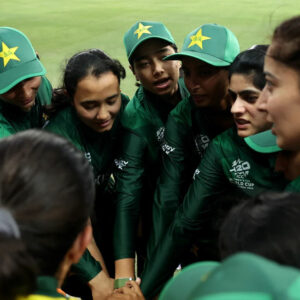
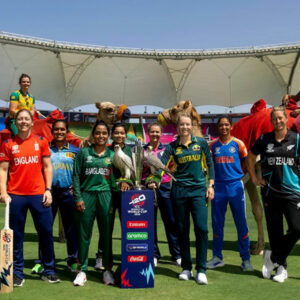
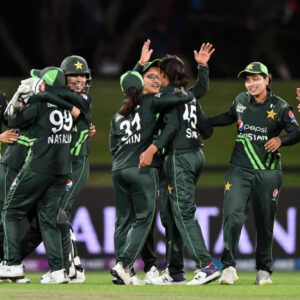
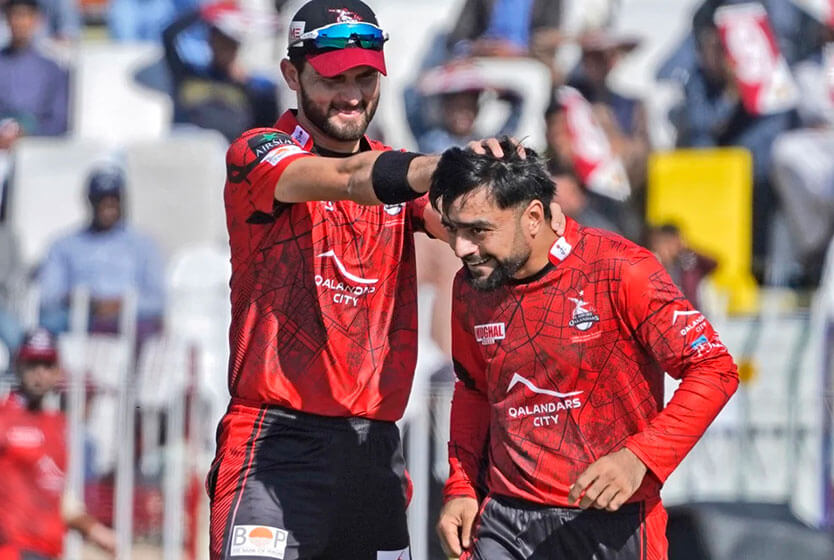
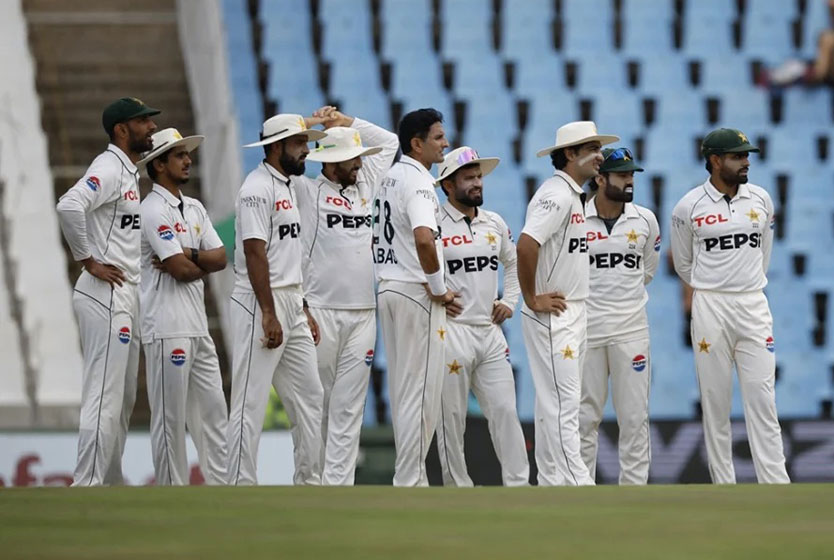
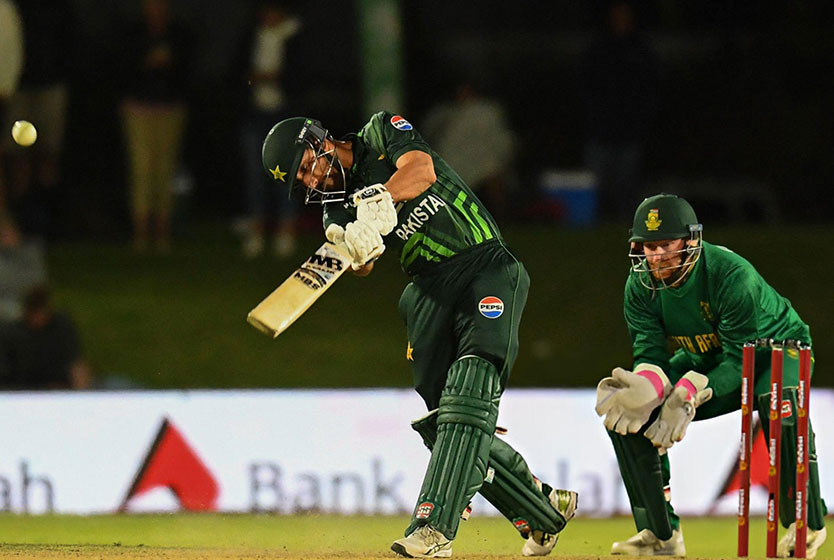
Leave a Reply